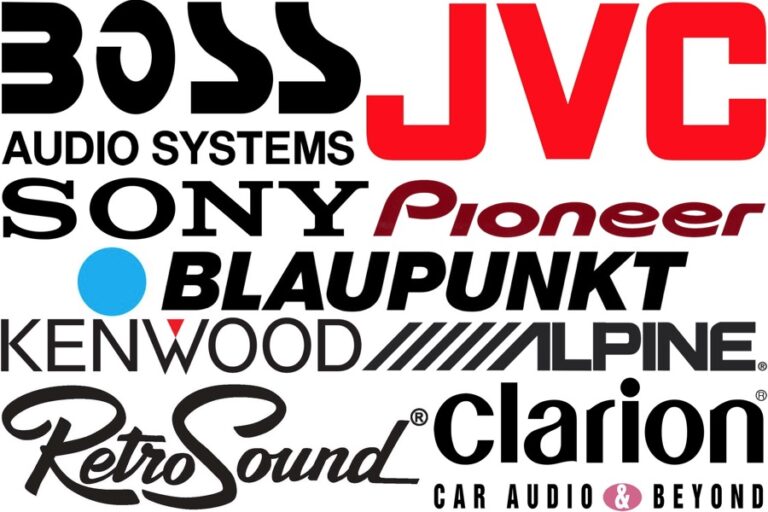Famous Car Brands In USA
Famous Car Brands In USA cars.truckstrend.com
An Enduring Legacy: Exploring America’s Automotive Icons
The United States has a rich and storied history with the automobile, a relationship that has profoundly shaped its economy, culture, and landscape. From the assembly lines that revolutionized manufacturing to the iconic vehicles that became symbols of freedom and innovation, American car brands have consistently been at the forefront of automotive evolution. These companies are not merely manufacturers; they are pillars of American industry, driving technological advancements, creating millions of jobs, and producing vehicles that resonate deeply with consumers worldwide. Understanding the famous car brands in the USA is to understand a significant part of the nation’s identity, a narrative woven with ingenuity, resilience, and an unwavering pursuit of the open road.
Famous Car Brands In USA
This comprehensive guide will delve into the titans and trailblazers of American automotive manufacturing, exploring their histories, their current offerings, and their vision for the future. We’ll examine what sets them apart, the benefits of choosing an American-made vehicle, and the exciting challenges and opportunities that lie ahead for this dynamic sector.
The Pillars of American Automotive Excellence
American car brands broadly fall into categories of established giants, luxury innovators, and emerging disruptors, each contributing uniquely to the diverse automotive landscape.
1. The Detroit Three: Enduring Giants of the Industry
Historically, the "Big Three" – Ford, General Motors (GM), and Chrysler (now part of Stellantis) – have dominated the American automotive scene. They represent decades of innovation, mass production, and a deep understanding of the American consumer.
Ford Motor Company: The Pioneer of Mass Production
Founded by Henry Ford in 1903, Ford revolutionized manufacturing with the introduction of the assembly line and the Model T, making the automobile accessible to the masses. Ford’s legacy is built on innovation, durability, and iconic design.
- Key Information: Ford is known for its wide range of vehicles, from robust trucks to performance cars and increasingly, electric vehicles. It’s a global powerhouse with a strong presence in North America.
- Famous Models: The F-Series pickup truck (America’s best-selling vehicle for decades), the legendary Mustang muscle car, the Explorer and Expedition SUVs, and new electric vehicles like the Mustang Mach-E and F-150 Lightning.
- Innovation & Benefits: Ford continues to innovate in areas like connectivity (FordPass), advanced driver-assistance systems (BlueCruise), and electrification. Choosing a Ford often means access to a vast dealer network, reliable parts availability, and a brand with a strong heritage of building tough, capable vehicles.

General Motors (GM): A Diverse Portfolio of Brands

Established in 1908, GM grew by acquiring and developing a diverse portfolio of brands, each targeting a specific market segment. GM’s strategy has always been about offering choice and catering to a broad spectrum of consumer needs.
- Key Information: GM encompasses several well-known brands, including Chevrolet, Cadillac, Buick, and GMC. This multi-brand approach allows GM to compete across various price points and vehicle types.
- Famous Brands & Models:
- Chevrolet (Chevy): The everyman’s brand, offering everything from compact cars (Malibu, Cruze) to powerful trucks (Silverado) and iconic sports cars (Corvette, Camaro). Chevy is known for value, reliability, and widespread appeal.
- Cadillac: GM’s luxury division, synonymous with American luxury and innovation. Famous for large, comfortable sedans and SUVs (Escalade, XT5) and now spearheading GM’s electric luxury push (Lyriq, Celestiq).
- GMC: Specializes in trucks and SUVs, often positioned as more premium or professional-grade versions of their Chevrolet counterparts (Sierra, Yukon). Known for rugged capability and upscale features.
- Buick: Often positioned as an "affordable luxury" brand, appealing to those seeking comfort and style without the premium price tag of Cadillac. Focuses primarily on SUVs (Encore, Envision, Enclave).

- Benefits: GM’s extensive dealer network, strong engineering capabilities, and commitment to electrification (Ultium battery platform) make its brands attractive choices. Their diverse offerings ensure there’s a GM vehicle for almost any need.
Stellantis (Formerly FCA US LLC): Niche Dominance and Performance
While Stellantis is a global conglomerate formed by the merger of Fiat Chrysler Automobiles (FCA) and PSA Group, its American roots through FCA US LLC are undeniable, encompassing brands like Jeep, Ram, Dodge, and Chrysler.
- Key Information: These brands excel in specific niches, from off-road prowess to heavy-duty hauling and high-performance muscle cars.
- Famous Brands & Models:
- Jeep: The quintessential American off-road brand, globally recognized for its rugged capability and adventurous spirit. Models like the Wrangler, Grand Cherokee, and Gladiator are icons.
- Ram: A dedicated truck brand known for its powerful, capable, and increasingly luxurious pickup trucks (Ram 1500, 2500, 3500). Ram trucks are often lauded for their comfortable interiors and innovative features.
- Dodge: Synonymous with American muscle and performance. Known for high-horsepower vehicles like the Challenger and Charger, as well as the family-friendly Durango SUV and Pacifica minivan (under Chrysler in some markets).
- Chrysler: Historically a major player, now primarily focused on family-oriented vehicles like the Pacifica minivan and the 300 sedan, offering comfort and practical features.
- Benefits: These brands offer unparalleled specialization in their respective segments. Jeep provides unmatched off-road credibility, Ram delivers leading truck capabilities, and Dodge offers thrilling performance.
2. The Electric Revolutionaries: Tesla and Beyond
The 21st century has seen the rise of new American automotive players, most notably Tesla, which has disrupted the industry with its focus on electric vehicles (EVs) and advanced technology.
Tesla: The EV Pioneer
Founded in 2003, Tesla quickly became a symbol of automotive innovation, challenging established norms with its all-electric powertrains, advanced software, and direct-to-consumer sales model.
- Key Information: Tesla is not just a car company; it’s a technology company focused on sustainable energy, artificial intelligence, and autonomous driving.
- Famous Models: Model S (luxury sedan), Model 3 (mass-market sedan), Model X (SUV with falcon-wing doors), Model Y (compact SUV). The Cybertruck and Semi are upcoming.
- Innovation & Benefits: Tesla leads in battery technology, charging infrastructure (Supercharger network), over-the-air software updates, and autonomous driving features (Autopilot, Full Self-Driving Beta). Choosing a Tesla means embracing cutting-edge technology, zero emissions, and a unique ownership experience.
Lincoln: Ford’s Luxury Reimagined
Lincoln is Ford’s luxury division, undergoing a significant resurgence with a focus on serene luxury, sophisticated design, and advanced technology.
- Key Information: Lincoln aims to provide a distinct "Quiet Flight" experience, emphasizing comfort, refinement, and intuitive technology.
- Famous Models: Navigator (full-size luxury SUV), Aviator (mid-size luxury SUV), Corsair (compact luxury SUV).
- Benefits: Lincoln vehicles offer a tranquil cabin experience, powerful engine options, and a suite of premium features designed to enhance comfort and convenience. They represent a more understated form of American luxury.
3. Emerging Players and Niche Innovators
The American automotive landscape continues to evolve with new companies pushing boundaries, particularly in the EV and niche vehicle markets.
- Rivian: Known for its adventure-focused electric vehicles, the R1T pickup truck and R1S SUV. Rivian targets the outdoor enthusiast market with impressive off-road capabilities and innovative features.
- Lucid Motors: A luxury electric vehicle manufacturer aiming for extreme range and performance with its Lucid Air sedan, directly challenging high-end luxury brands.
- Fisker: Another electric vehicle startup, focusing on sustainable materials and distinctive design, with models like the Ocean SUV.
These companies represent the dynamism and entrepreneurial spirit that continue to shape the American automotive industry, often pushing the envelope in design, technology, and sustainability.
The Evolution of American Automaking: Shifting Gears for the Future
The American automotive industry is currently undergoing one of its most profound transformations since the advent of the assembly line. The shift towards electric vehicles (EVs) is not merely a trend but a fundamental reorientation of production, design, and consumer expectations.
- Electrification: All major American brands are investing billions in EV development, building dedicated EV platforms, battery gigafactories, and expanding charging infrastructure. This transition promises cleaner transportation and new performance benchmarks.
- Technology & Connectivity: Modern American vehicles are increasingly sophisticated computers on wheels. Advanced infotainment systems, over-the-air updates, sophisticated driver-assistance systems (ADAS), and vehicle-to-everything (V2X) communication are becoming standard, enhancing safety, convenience, and the driving experience.
- Design & User Experience: There’s a renewed focus on interior design, premium materials, and intuitive user interfaces. American brands are aiming for a holistic experience that extends beyond mere transportation.
- Manufacturing Innovation: American automakers are adopting advanced manufacturing techniques, including robotics, AI-driven quality control, and sustainable production processes, to improve efficiency and reduce environmental impact.
Practical Advice: Choosing Your American-Made Vehicle
When considering an American car brand, here’s some practical advice to guide your decision:
- Define Your Needs: Are you looking for a rugged truck for work, a family-friendly SUV, a fuel-efficient sedan, or a high-performance EV? Each American brand excels in different areas.
- Set Your Budget: American brands offer vehicles across a wide price spectrum. Consider not just the purchase price but also insurance, maintenance, and fuel/charging costs.
- Research Reliability and Resale Value: While often debated, modern American vehicles have significantly improved in reliability. Consult independent ratings (e.g., J.D. Power, Consumer Reports) for specific models.
- Test Drive Extensively: There’s no substitute for experiencing a vehicle firsthand. Pay attention to comfort, handling, technology interface, and overall driving dynamics.
- Explore Dealer Networks and Service: American brands typically have extensive dealer networks, which can be beneficial for service and parts.
- Consider the Future: If sustainability is important, look into the growing range of American-made EVs and hybrids.
- Check for Incentives: Government incentives for EV purchases or state-specific programs can significantly reduce the cost of ownership.
Challenges and Future Outlook
Despite their strengths, American car brands face significant challenges:
- Intense Global Competition: From established European and Asian automakers to new tech-focused startups, the global automotive market is fiercely competitive.
- Supply Chain Disruptions: Recent chip shortages and other supply chain issues have highlighted vulnerabilities in global manufacturing.
- Workforce Transition: The shift to EVs requires retooling factories and retraining a workforce accustomed to internal combustion engine (ICE) technology.
- Charging Infrastructure: The widespread adoption of EVs depends heavily on the expansion and reliability of public charging infrastructure.
However, the future for American car brands is also brimming with opportunities. Their commitment to electrification, autonomous driving, and advanced technology positions them to lead the next era of mobility. With a renewed focus on innovation, sustainability, and consumer-centric design, American automakers are poised to continue their legacy of shaping the world’s roads for generations to come.
Estimated Price Ranges for Popular American Car Brand Models
It’s important to note that vehicle prices vary widely based on trim level, options, market conditions, and location. The figures below are estimated starting MSRPs for popular models from each brand and are subject to change. They do not include destination fees, taxes, or incentives.
| Car Brand | Key Popular Models (Examples) | Estimated Starting MSRP Range (USD) | Vehicle Type Focus | Key Features / Notes |
|---|---|---|---|---|
| Ford | F-150, Mustang, Explorer, Escape, Mach-E | $35,000 – $85,000+ | Trucks, SUVs, Sports Cars, EVs | Versatility, iconic models, strong EV push |
| Chevrolet | Silverado, Equinox, Tahoe, Corvette, Bolt EUV | $28,000 – $80,000+ | Trucks, SUVs, Sports Cars, EVs | Broad appeal, value, performance |
| Cadillac | Escalade, XT5, Lyriq, CT5 | $45,000 – $120,000+ | Luxury SUVs, Sedans, Luxury EVs | American luxury, advanced tech, comfort |
| GMC | Sierra, Yukon, Acadia, Hummer EV | $38,000 – $110,000+ | Premium Trucks, SUVs, Electric Supertrucks | Professional grade, upscale features |
| Buick | Encore GX, Envision, Enclave | $27,000 – $55,000+ | Entry-Luxury SUVs | Quiet cabins, comfortable ride |
| Jeep | Wrangler, Grand Cherokee, Gladiator | $32,000 – $85,000+ | Off-Road SUVs, Trucks | Unmatched off-road capability, iconic design |
| Ram | Ram 1500, Ram 2500/3500 | $39,000 – $90,000+ | Pickup Trucks | Power, capability, refined interiors |
| Dodge | Charger, Challenger, Durango | $35,000 – $80,000+ | Muscle Cars, Performance SUVs | High horsepower, aggressive styling |
| Chrysler | Pacifica, 300 | $37,000 – $60,000+ | Minivans, Sedans | Family-friendly, practical, comfort |
| Tesla | Model 3, Model Y, Model S, Model X | $40,000 – $100,000+ | Electric Sedans, SUVs, Performance EVs | Leading EV tech, Supercharger network, autonomy |
| Lincoln | Navigator, Aviator, Corsair | $45,000 – $110,000+ | Luxury SUVs | Serene luxury, sophisticated design |
| Rivian | R1T, R1S | $75,000 – $95,000+ | Electric Adventure Trucks/SUVs | Off-road EV performance, outdoor focus |
| Lucid | Air | $70,000 – $250,000+ | Luxury Electric Sedans | Extreme range, performance, premium design |
Note: Prices are estimates and subject to change. Specific trim levels, options, and market conditions will significantly affect the final price.
Frequently Asked Questions (FAQ)
Q1: What is the oldest American car brand still in production?
A1: Ford Motor Company, founded in 1903, is often considered the oldest American car brand still producing vehicles under its original name. While some General Motors brands (like Cadillac) date back to the early 1900s, GM itself was formed later through consolidation.
Q2: Are American cars reliable now?
A2: Yes, generally. While American brands historically faced criticism regarding reliability, significant advancements in manufacturing quality, engineering, and technology have dramatically improved their standing. Many American models consistently rank highly in reliability studies from organizations like J.D. Power and Consumer Reports.
Q3: Which American brand makes the best trucks?
A3: This is highly debated and depends on specific needs. Ford’s F-Series (especially the F-150) is consistently the best-selling, known for its versatility and capability. Ram trucks are lauded for their refined interiors and ride quality, while Chevrolet/GMC Silverado/Sierra trucks offer strong performance and a wide range of options. Each has a loyal following.
Q4: What’s the difference between Chevrolet and GMC?
A4: Both are General Motors brands that often share platforms and powertrains. However, GMC vehicles are typically positioned as more upscale or "professional grade," offering more premium features, slightly different styling, and higher trim levels compared to their Chevrolet counterparts (e.g., GMC Sierra vs. Chevy Silverado, GMC Yukon vs. Chevy Tahoe).
Q5: What is the future of American car brands?
A5: The future is heavily focused on electrification, autonomous driving, and connected vehicle technology. American brands are investing billions in developing new EV platforms, battery technology, and software-defined vehicles. They are also exploring new business models, such as subscription services and mobility solutions.
Q6: Why choose an American-made car?
A6: Choosing an American-made car can support domestic job creation and the economy. Beyond that, American brands often offer a strong heritage of innovation, robust and powerful vehicle options (especially in trucks and SUVs), extensive dealer networks, and a growing range of advanced technology and electric vehicle choices.
Conclusion: Driving Forward with American Innovation
The landscape of famous car brands in the USA is a testament to American ingenuity, industrial might, and an enduring passion for the automobile. From the pioneering spirit of Ford and the comprehensive offerings of General Motors and Stellantis to the disruptive innovation of Tesla and the emerging electric startups, these brands represent a dynamic and evolving industry. They have not only shaped the past but are actively defining the future of personal mobility.
By understanding their unique strengths, historical significance, and forward-looking strategies, consumers can make informed decisions that align with their values and needs. As American automakers continue to embrace electrification, connectivity, and sustainable practices, they reaffirm their position as global leaders, ensuring that the legacy of American automotive excellence will continue to drive forward for generations to come.






